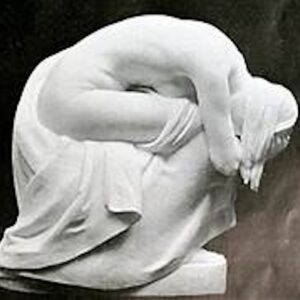I take special delight in opening a new volume of poetry from a writer whose previous work I’ve read and enjoyed. As with a hike through familiar terrain transformed by taking new, previously untrodden side trails, what measure of comfort I take in familiar themes, language, and craft comes seasoned with the anticipation of fresh ground explored, new depths quarried. Three collections published this year serve as examples.
Master of nuance and narrative, B. H. Fairchild has long laid claim to a uniquely American poetic landscape dotted with sunbaked small towns populated by blue collar working men, barnstorming ballplayers, and bored youths with big ideas. Fairchild, whose friends call him “Pete” (long story, that), hones his language and lines to exacting standards, much like the skilled machinists who inhabit his early memories and mature imagination. His 2023 collection, An Ordinary Life (W. W. Norton), not only revisits familiar settings with sharpened senses, but returns to some memorable poetic personae: the equally love-and-word-struck Candi Baumeister and the workingman-philosopher, Roy Eldridge Garcia. Over these moments of productive resifting, the poet spreads a noticeably darkened canopy of loss and regret that is always restrained, finely wrought, and rich with available meaning yet still deeply personal. Without sacrificing Fairchild’s signature precision and grace, this collection feels remarkably raw, inward, and revelatory.
Nowhere is this more apparent than in the concluding sequence of poems, “An Ordinary Life,” in which Fairchild reflects on the abbreviated life and unexpected death of his son. Narrated from the son’s perspective but in third person singular, the sequence reaches an apex of carefully modulated emotion in the penultimate poem, “The Son Meditates in the Privacy of his Chevrolet Automobile,” when the highway becomes:
…a long prayer, and the car is the world, a life beyond the endless fields of wheat and maize, the known, crucifix and dice dangling from the rearview mirror, droves of beer cans tumbling over the floorboard. Everywhere the strange grief of telephone wires, radio scattering metaphors for broken hearts from Del Rio to Dallas. Everyone is dying for love: the son, the women he dreams of, and Virgil, the welder, who sculpts iron nudes behind the shop and offers the son ancient wisdom in koans vague as dust clouds blowing in: a wise man knows, just by looking, whether an animal is walking toward or away from water.
Just like a koan or the Edward Hopper images serving as cover art for some of Fairchild’s collections, such scenes are specific in detail while remaining impossible to pin down, evocative moments inviting us to brood upon and learn.
The front cover of Scott Cairns’s newest volume, Lacunae (Paraclete Press, 2023), features a Serbian Orthodox image of the Theotokos (Mary, the God-bearer), and her son, pictured as a youth but posed as Christ Pantokrator (“Ruler of all”). At once particular, patterned, and profound, the ikon hints at mysteries beyond the grasp of words. Similarly, the book’s title evokes gaps in human knowledge that reason, language, and experiment cannot fill. In a move presaged in earlier collections but foregrounded here, interrupted structures of line and syntax call attention to matters we can gesture toward yet never fully apprehend. For all this emphasis on linguistic insufficiency, these poems are fertile prompts to contemplation, rich in rewards for those who pour over them with the attention they deserve.
In “Recuperating Lacunae,” for example, Cairns signals the paradox at work in these poems:
No, not so much an emptiness, never yet an emptiness. Think, rather, a discrete cove proving still to offer—and ever to offer—what one cannot, can never comprehend, very like the cup held now before you, abysmally full, a pool roiling with boundless abundance…
Venturing far beyond Mies van der Rohe’s minimalist maxim, “Less is More,” Cairns walks a path of poetic and personal emptying that makes room for God’s immensity. There are notes of urgency and loss in these stripped-down lines, hints of the poet reckoning more directly with mortality than before, as in the poem, “Kenosis,” in which he finds the daunting process of self-emptying:
…a little dark, and yes, not just a little bleak. Within that dim arena one also meets a measure of despair. Here, this ache, familiar, attains a strange and a curious agency, as if the ache itself becomes the tool by which the hollow might obtain a nascent hallowing.
The poem continues, recollecting a walk among ancient Greek ruins Cairns took with a friend, “two years past / what had been a terminal / diagnosis,” during which the friend:
…shares with me a glimpse of what a dread despair can serve, facilitate for one whose solitude opens to an answering solitude… …a deep tremor of sudden expectation, the trembling thrill of a fullness drawing near, meeting one’s own becoming emptiness.
These new poems, with their evocative silences and mysterious vacancies, may strike some as more challenging than Cairns’s prior work. If so, they also feel like a goal—however provisional—toward which much of that work has pointed, a necessary movement in a poetic and spiritual via negativa.
Those not yet acquainted with Matthew E. Henry’s already impressive bibliography are hereby urged to correct that fault promptly. Already on his fourth collection, this emerging poet is a talent to reckon with. Scott Cairns himself calls Henry’s latest volume, The Third Renunciation (NYQ Books, 2023), “a tour de force of apophatic anaphora…(offering) profound—often comic, often severe, most often vertiginous—assistance in the hard work of compassion.” An interwoven tapestry of contemporary sonnets written with scant regard for formal rules, these poems explore contested ground at the intersection of race, theology, American history, and human suffering. The irreverent, biblically literate wit and bracing satire of his earlier work is again on display in lines such as:
Say all this God-talk is pretty attempts to compose lies You’ll attend. to command chaos, cram consequence in 14 lines. a fitting sacrifice: strangled, offered with strange fire. the first-fruits of my heart, covered in brother-blood.
Neither giving nor taking quarter, Henry refuses to turn his eye from what most choose not to see, politely overlook:
Say we survey the wondrous cross burning outside the hanging man’s home—one dying because the whole realm of nature could not hold those who don’t know their place, who’d be called a man. see—from his head, his hands, his feet— blood flowing down like love his children lost the moment he gloried in lifting his eyes from dirt. see his roped ascension. see the crowd composed, bodies thick as thorns. see contempt poured: the laughers, the pointers, the vile boasters proudly raising their charred tokens—an ear, a lip, a testicle. see how they silenced his skin, demanded his life, his all. see his divinity.
Matthew Henry challenges us to wrestle with texts—both his and the Bible’s—and not let go until the reader walks away with a noticeable limp. Like Fairchild and Cairns, he treads further into the unsettled and unsettling terrain of his craft, inviting us to follow. With these three as trusted guides, it’s well worth the risk.
Brian Volck is a pediatrician and writer living in Baltimore. He is the author of a poetry collection, Flesh Becomes Word, and a memoir, Attending Others: A Doctor’s Education in Bodies and Words. His website is Brianvolck.com





